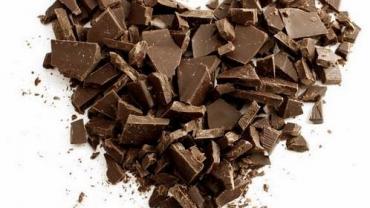
Patients have yet to recover from the holiday candy feeding frenzy that started with Halloween and went straight through Christmas and already they are inundated with even more candy leading up to Valentine's Day and Easter. It's not easy for them or for us their healthcare professionals as we try to lead by example to resist sugar-crusted marshmallows and milk chocolates coated in red and pink candy shells. It's all too easy to be tempted by heart-shaped boxes adorned with flowers and lace and candy wrapped in eye-catching red foil. Amongst this barrage of refined sugar are there any treats that can satisfy a sweet tooth with fewer metabolic consequences?
Consider dark chocolate! It's not exactly a superfood but it does have a few things going for it. After all it’s not called Theobroma cacao food of the gods for nothing!
Cocoa contains polyphenols that may be beneficial for cardiovascular health and modulating inflammation. Catechins anthocyanins and proanthocyanidins make up approximately 37% 4% and 58% of cocoa bean polyphenols respectively. The content of polyphenols in chocolate products depends on how much of the non-fat cocoa solids are in them. Non-fat cocoa solids account for the polyphenol storage area of cocoa. The highest phenolic content is found in cocoa powder (72%-87%) followed by baking chocolate (45%-49%) dark chocolate (20%-30%) semi-sweet (15%-19%) and milk chocolate (5%-7%). Darker chocolates not only have higher amounts of beneficial polyphenols than semi-sweet and milk chocolates but in general they also have less sugar because the higher the percentage of cocoa the lower the sugar content as well.
When it comes to cocoa powder recipes may specify natural or Dutched cocoa. Dutching involves combining the cocoa with an alkali in order to neutralize the acidity and somewhat harsh flavors cocoa may have. (Natural cocoa has a pH of about 5-6 while Dutched cocoa is closer to a neutral 7.) The success of the recipe depends on the type of cocoa used (mostly due to how the two cocoas interact with leaveners) but it's important to note that the polyphenol content of cocoa is reduced by the Dutching process.
Regular consumption of natural cocoa has been linked to reduced blood pressure and overall improvement in cardiovascular health. Cocoa polyphenols may help inhibit oxidation of LDL particles inhibit activity of lipoxygenase and downregulate production of inflammatory cytokines. The reduction in blood pressure may be due to cocoa's influence on activating nitric oxide synthase and increasing bioavailability of the vasorelaxant nitric oxide. It may even act as a natural ACE inhibitor. (And let's not forget the enjoyment someone gets from an occasional square of good quality chocolate might help them relax too!)
Aside from the phenolic component cocoa is also a source of fat. However the predominant fatty acid in cocoa butter saturated stearic acid has a neutral effect on blood lipids. And the second-most predominant fatty acid in cocoa butter is monounsaturated oleic acid the same one celebrated as being responsible for olive oil's heart-healthy status. So compared to inexpensive chocolates loaded with partially-hydrogenated soy and cottonseed oils good quality dark chocolate contains fats that may actually be good for us.
For a luscious cold weather treat consider a mug of homemade hot cocoa. Made with natural unsweetened cocoa powder whole milk and stevia xylitol or erythritol to sweeten this is something sure to beat the winter blues without spiking blood sugar too much. (Those who are dairy intolerant can use almond rice or hemp milk.) For an extra-luxurious texture and an added nutritional boost use coconut milk. Opt for full-fat coconut milk rather than lite since the beneficial portion of coconut (aside from its high fiber content) is found in the fat. Coconut contains antimicrobial lauric and capric acids plus other medium-chain triglycerides which are beneficial for memory cognitive function and neurological health. For a spicy Mexican style cocoa add a pinch of cinnamon and cayenne pepper both of which contribute health-promoting qualities of their own. Cinnamon may be beneficial for moderating blood glucose and metabolic markers for non-alcoholic fatty liver disease while cayenne pepper is a natural pain reliever anti-inflammatory and may help support weight loss and weight management.
From a nutritional standpoint dark chocolate may not be equivalent to a grass-fed steak and a pile of steamed broccoli but one of the country's leading medical centers agrees: it beats the pants off marshmallows and candy hearts!